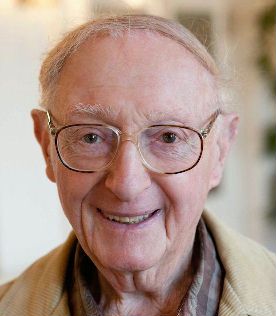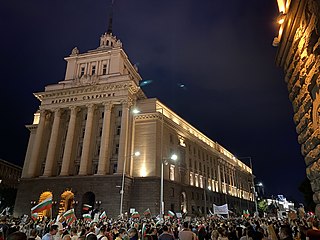
The Gulag was the government agency in charge of the Soviet network of forced labour camps which were set up by order of Vladimir Lenin, reaching its peak during Joseph Stalin's rule from the 1930s to the early 1950s. English-language speakers also use the word gulag in reference to each of the forced-labor camps that existed in the Soviet Union, including the camps that existed in the post-Lenin era. The full official name of the agency changed several times.

A prisoner of war (POW) is a person who is held captive by a belligerent power during or immediately after an armed conflict. The earliest recorded usage of the phrase "prisoner of war" dates back to 1610.

Varna is the third-largest city in Bulgaria and the largest city and seaside resort on the Bulgarian Black Sea Coast and in the Northern Bulgaria region. Situated strategically in the Gulf of Varna, the city has been a major economic, social and cultural centre for almost three millennia. Historically known as Odessos, Varna developed from a Thracian seaside settlement to a major seaport on the Black Sea.

Eleftherios Kyriakou Venizelos was a Cretan Greek statesman and prominent leader of the Greek national liberation movement. He is noted for his contribution to the expansion of Greece and promotion of liberal-democratic policies. As leader of the Liberal Party, he held office as prime minister of Greece for over 12 years, spanning eight terms between 1910 and 1933. During his governance, Venizelos entered in diplomatic cooperation with the Great Powers and had profound influence on the internal and external affairs of Greece. He has therefore been labelled as "The Maker of Modern Greece" and is still widely known as the "Ethnarch".

The history of the Jews in Greece can be traced back to at least the fourth century BCE. The oldest and the most characteristic Jewish group that has inhabited Greece are the Romaniotes, also known as "Greek Jews." The term "Greek Jew" is predominantly used for any Jew that lives in or originates from the modern region of Greece.

Belene is a town in Pleven Province, Northern Bulgaria. It is the administrative centre of the homonymous Belene Municipality. The town is situated on the right bank of the Danube river, close to the town of Svishtov.

Turkish people or Turks are the largest Turkic people who speak various dialects of the Turkish language and form a majority in Turkey and Northern Cyprus. In addition, centuries-old ethnic Turkish communities still live across other former territories of the Ottoman Empire. Article 66 of the Turkish Constitution defines a "Turk" as: "Anyone who is bound to the Turkish state through the bond of citizenship." While the legal use of the term "Turkish" as it pertains to a citizen of Turkey is different from the term's ethnic definition, the majority of the Turkish population are of Turkish ethnicity. The vast majority of Turks are Muslims and follow the Sunni and Alevi faith.

Pazardzhik is a city situated along the banks of the Maritsa river, southern Bulgaria. It is the centre of Pazardzhik Province and Pazardzhik Municipality. It is located in the Upper Thracian Plain and in the Pazardzhik-Plovdiv Field, a subregion of the plains. It is west of Plovdiv, about 37 kilometres (23 mi), 112 kilometres (70 mi) southeastern of Sofia and 288 kilometres (179 mi) from Burgas. The population is around 65,671, as it has been growing around from the end of the 19th century to the end of the 20th century. The city reached its highest milestone, exceeding 80,000. Due to poor economic performance in Bulgaria during the 1990s and early 2000s, emigration of Bulgarians began, which affected Pazardzhik as well.

Bulgarian Turks are ethnic Turks from Bulgaria. According to the 2021 census, there were 508,375 Bulgarians of Turkish descent, roughly 8.4% of the population, making them the country's largest ethnic minority. Bulgarian Turks also comprise the largest single population of Turks in the Balkans. They primarily live in the southern province of Kardzhali and the northeastern provinces of Shumen, Silistra, Razgrad and Targovishte. There is also a diaspora outside Bulgaria in countries such as Turkey, Austria, the Netherlands, Sweden, Norway and Romania, the most significant of which are the Bulgarian Turks in Turkey.

The history of the Jews in Bulgaria goes back almost 2,000 years. Jews have had a continuous presence in historic Bulgarian lands since before the 2nd century CE, and have often played an important part in the history of Bulgaria.

The occupation of Greece by the Axis Powers began in April 1941 after Nazi Germany invaded the Kingdom of Greece to assist its ally, Italy, in their ongoing war that had started in October 1940. Following the conquest of Crete, the entirety of Greece was occupied starting in June 1941. The occupation of the mainland lasted until Germany and its ally Bulgaria withdrew under Allied pressure in early October 1944, with Crete and some other Aegean islands being surrendered to the Allies by German garrisons in May and June 1945, after the end of World War II in Europe.

The Serbs are one of the constitutional ethnic groups of North Macedonia, numbering about 24,000 inhabitants.

Ohrana were armed collaborationist detachments organized by the former Internal Macedonian Revolutionary Organization (IMRO) structures, composed of Bulgarians in Nazi-occupied Greek Macedonia during World War II and led by officers of the Bulgarian Army. Bulgaria was interested in acquiring Thessalonica and Western Macedonia, under Italian and German occupation and hoped to sway the allegiance of the 80,000 Slavs who lived there at the time. The appearance of Greek partisans in those areas persuaded the Axis to allow the formation of these collaborationst detachments. However, during late 1944, when the Axis appeared to be losing the war, many Bulgarian Nazi collaborators, Ohrana members and VMRO regiment volunteers fled to the opposite camp by joining the newly founded communist SNOF. The organization managed to recruit initially 1,000 up to 3,000 armed men from the Slavophone community that lived in the western part of Greek Macedonia.

World War II in Yugoslav Macedonia started with the Axis invasion of Yugoslavia in April 1941. Under the pressure of the Yugoslav Partisan movement, part of the Macedonian communists began in October 1941 a political and military campaign to resist the occupation of Vardar Macedonia. Officially, the area was called then Vardar Banovina, because the very name Macedonia was prohibited in the Kingdom of Yugoslavia. It was occupied mostly by Bulgarian, but also by German, Italian, and Albanian forces.
Turks in Italy, also referred to as Turkish Italians or Italian Turks, refers to Italian citizens of full or partial Turkish origin. Although some Turks came to Italy as Ottoman migrants, the majority of Italian Turks descend from the Republic of Turkey; moreover, there has also been Turkish migration from other post-Ottoman countries including ethnic Turkish communities that have moved to Italy from the Balkans, the island of Cyprus, North Africa and, more recently, Iraq and Syria.

The "Revival Process" or the "Process of Rebirth" refers to a policy of forced assimilation practiced by the socialist Bulgarian government in the 1980s (1984-1989). It was the culmination of a series of repressive assimilationist campaigns directed at the country's Muslim minority. The "Revival Process" was in turn followed by the forced expulsion of over 300,000 Muslims in 1989.

During World War I in Queensland, Australia, enemy aliens were frequently arrested and detained. Strong anti-German sentiment resulted in many arrests and investigations. German place names in Queensland were frequently renamed with British names.

Walter Arlen was an Austrian-born American composer, focused on songs for voice and piano. Just after completing school, he fled the Nazi regime in Vienna for the United States, where he worked as a music critic for the Los Angeles Times, and a professor of music at the Loyola Marymount University. He was recognised as a composer late in life.

The 2020–2021 Bulgarian protests were a series of demonstrations that were being held in Bulgaria, mainly in the capital Sofia, as well as cities with a large Bulgarian diaspora, such as Brussels, Paris, Madrid, Barcelona, Berlin and London. The protest movement was the culmination of long-standing grievances against endemic corruption and state capture, particularly associated with prime minister Boyko Borisov's governments, in power since 2009.


















